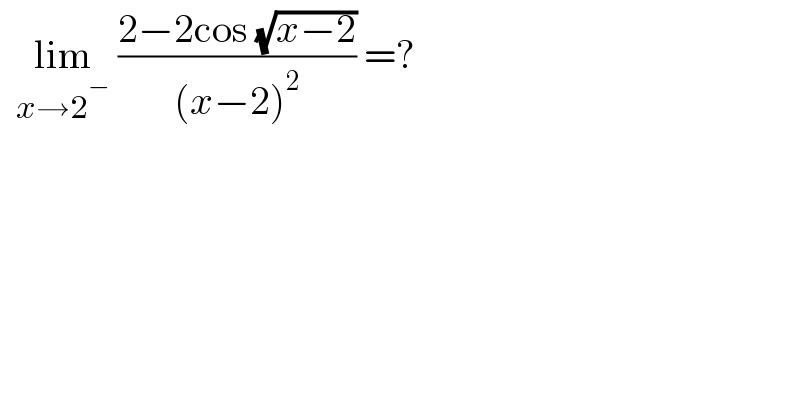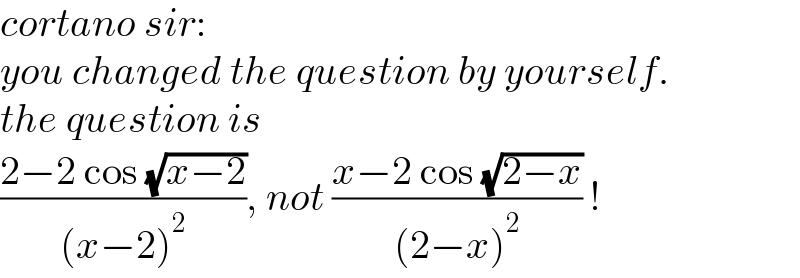
Question and Answers Forum
Question Number 161586 by blackmamba last updated on 20/Dec/21

Commented by cortano last updated on 20/Dec/21

Commented by mathmax by abdo last updated on 20/Dec/21

Answered by TheSupreme last updated on 20/Dec/21

Commented by cortano last updated on 20/Dec/21

Commented by cortano last updated on 20/Dec/21

Commented by cortano last updated on 20/Dec/21

Commented by mr W last updated on 20/Dec/21

Commented by mnjuly1970 last updated on 20/Dec/21
![D_( f) = (∞ ,2]](Q161610.png)
Commented by mr W last updated on 20/Dec/21

Answered by mathmax by abdo last updated on 20/Dec/21

